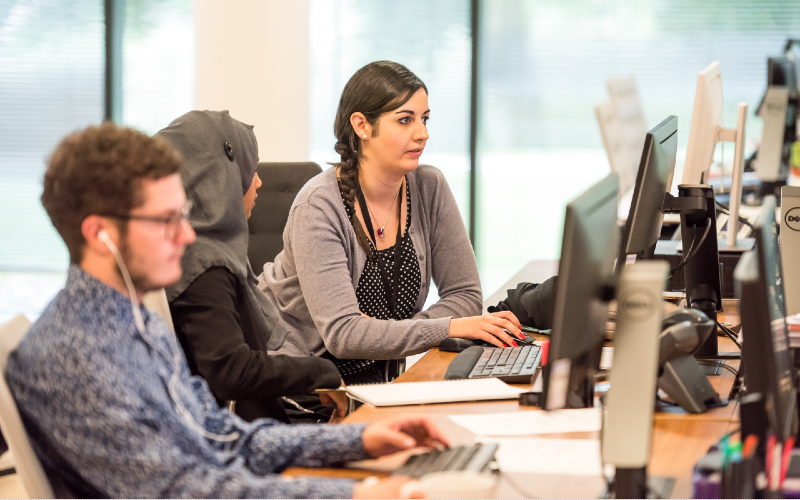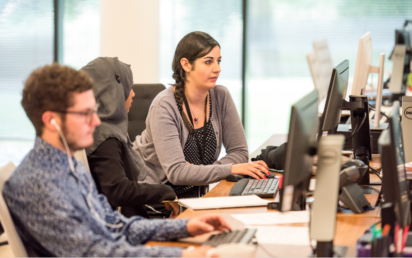Record numbers of UK 18-year-olds have applied to study computing at university, driven by the rising prevalence of artificial intelligence.
Data from admissions service UCAS shows there have been 94,870 applications to computing by UK-based 18-year-olds – up from 86,630 last year and 71,150 in 2021.
Computing is now the seventh most popular course behind subjects allied to medicine (156,460 applications), biological and sports sciences (105,490), engineering and technology (96,180), social sciences (178,680), business and management (184,000), and design, creative and performing arts (126,310).
This has been driven by interest in computer science (+11% compared to 2022 and +35% on 2021), software engineering (+16% on 2022 and +45% on 2021), computer games and animation (+2% on 2022 and +28% on 2021) and artificial intelligence (+4% on 2022 and +16% on 2021).
For computing, there has also been an increase in the number of applications by UK 18-year-olds from the most disadvantaged backgrounds – 11,870 this year, up from 11,110 in 2022 and 8,320 in 2021.
Overall, there have been 195,690 applications to computing – counting people of all ages and domiciles – up 9% on 2022 and 26% on 2021.
Demystifying Tech: Harnessing AI within your business – with Ben Grubert
Inevitable CEO Ben Grubert will discuss the rise of AI, the evolving regulatory landscape and offer practical tips for harnessing ethical AI into your business in BusinessCloud’s Demystifying Tech podcast webinar. You can sign up at the link above and submit a question for Ben below
Error: Contact form not found.
Computing as a whole remains a male-dominated field, with only 18% of all UK 18-year-olds applications made by females – although this is higher than the 17% in 2022 and 16% in 2021.
“With AI revolutionising the tech industry, it is estimated that digitally led skills will be required for 90% of roles within the next two decades,” said Anna Brailsford, CEO at Code First Girls.
“As a result, the UK’s tech job market is projected to be worth £30bn by 2025 – six times larger than it is now, but as things stand, there will be one qualified woman for every 115 roles by 2025.
“To ensure our tech industry is as strong as it can be, girls must be encouraged into tech careers and pathways early in their education, so employers can draw on the widest possible range of voices and insights.”
It comes amid a rise in the popularity of artificial intelligence and gaming, as significant new advances in digital technologies, such as ChatGPT, come to the market.
Rashik Parmar MBE, chief executive of BCS, the chartered institute for IT, added: “Teenagers in the UK know that AI will change the world forever; it shouldn’t surprise us to see this soaring demand for computing degrees.
“AI is already reshaping how cancer is diagnosed, how we tackle climate change, how we work and how we communicate. The thousands of young men and women applying for computing through UCAS do so because they want a say in this future.
“Ethics and diversity are vital in AI and we want people from every background to know that the tech profession needs them.”
Launchpad: Building a flexible workforce – with Beckie Taylor
Tech Returners CEO Beckie Taylor will delve into the opportunities and challenges around building a flexible workforce – and explain how her company helps tech employees back in to work following a career break such as maternity leave – in TechBlast’s Launchpad podcast webinar. You can sign up at the link above and submit a question for Beckie below
Error: Contact form not found.


